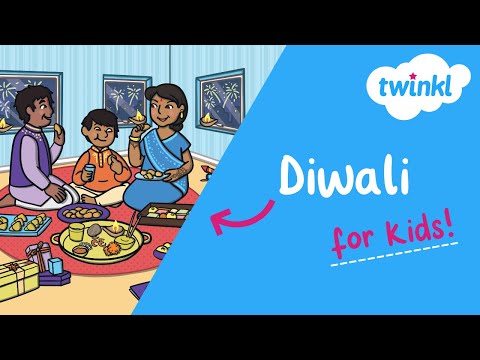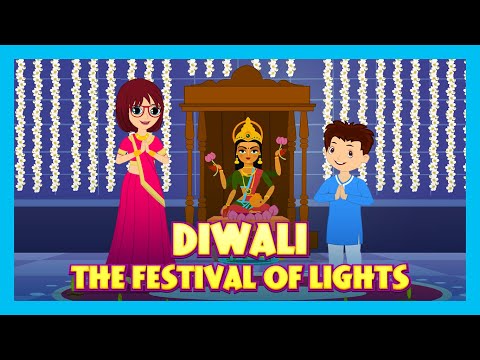The Significance Of Bangladeshi Diwali: Celebrating Light, Victory, And Hope
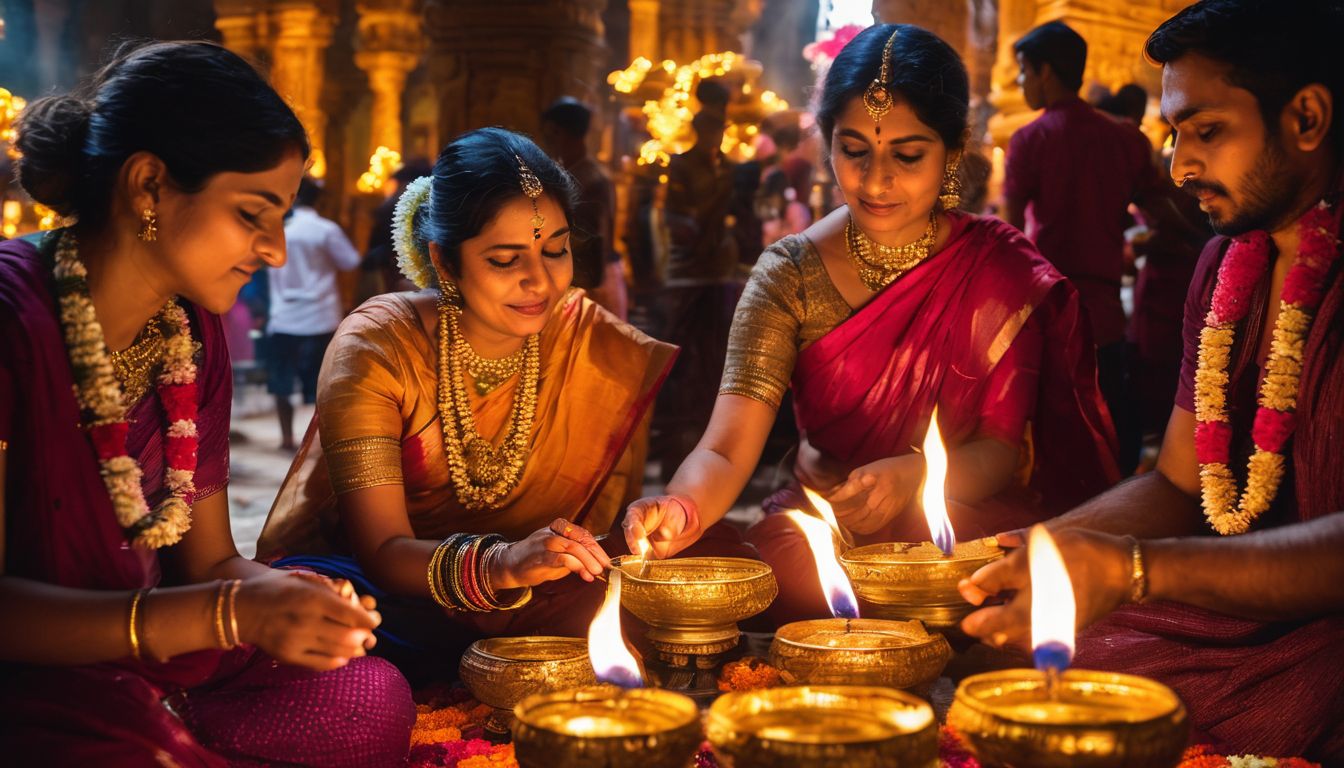
Every autumn, Bangladesh illuminates with the vibrant celebration of Diwali, also known as Deepavali. This festival holds great significance for Hindus in the country as it symbolizes light’s triumph over darkness and good overcoming evil.
In this article, we will delve into how Bangladeshi Hindus honor this occasion – from its historical roots to modern-day traditions. So let’s ignite our curiosity and discover why millions eagerly anticipate this “Festival of Lights”.
Key Takeaways
- Diwali, also known as Deepavali, is a significant festival celebrated by Hindus in Bangladesh.
- The festival symbolizes light’s triumph over darkness and good overcoming evil.
- Diwali celebrations in Bangladesh involve lighting lamps, paying homage to the goddess Kali, exchanging gifts, and enjoying delicious food with family.
- While Diwali in Bangladesh shares similarities with Diwali in India, there are also noticeable differences influenced by regional and cultural contexts.
Background on Diwali in Bangladesh
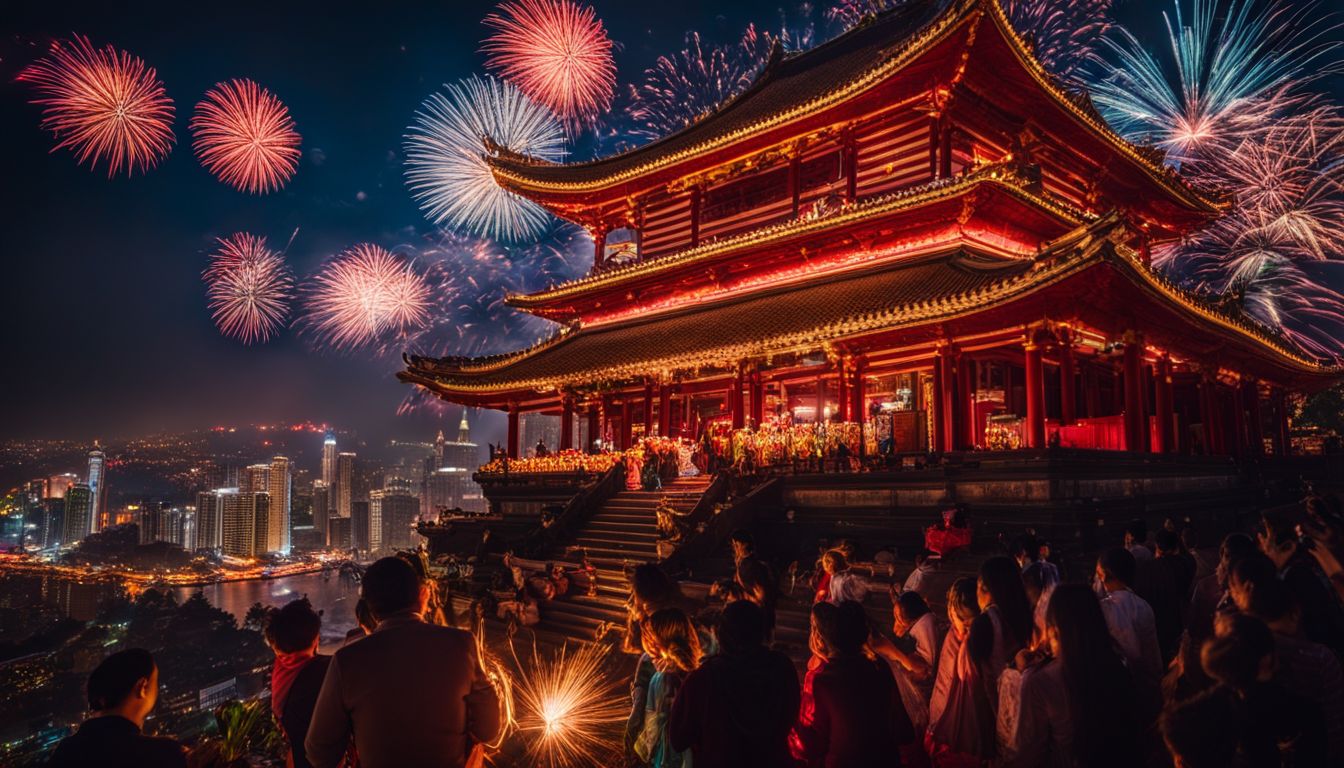
Diwali in Bangladesh is a celebration of light, victory, and hope primarily observed by the Hindu community.
Festivities celebrated by Hindus

Hindus in Bangladesh join the Diwali joy with full heart and spirit. They light up clay lamps at their homes. The bright lights chase away darkness and bring hope. They also pay homage to the goddess Kali during this time.
Exchanging gifts is a big part of this festivity, as it’s seen as spreading love and happiness. Good food adds more flavor to the celebration, making it a memorable time for family get-togethers.
This festival does not only shine light on Hindu homes but also lights up their hearts with warmth and positivity.
Similarities and differences with Diwali in India
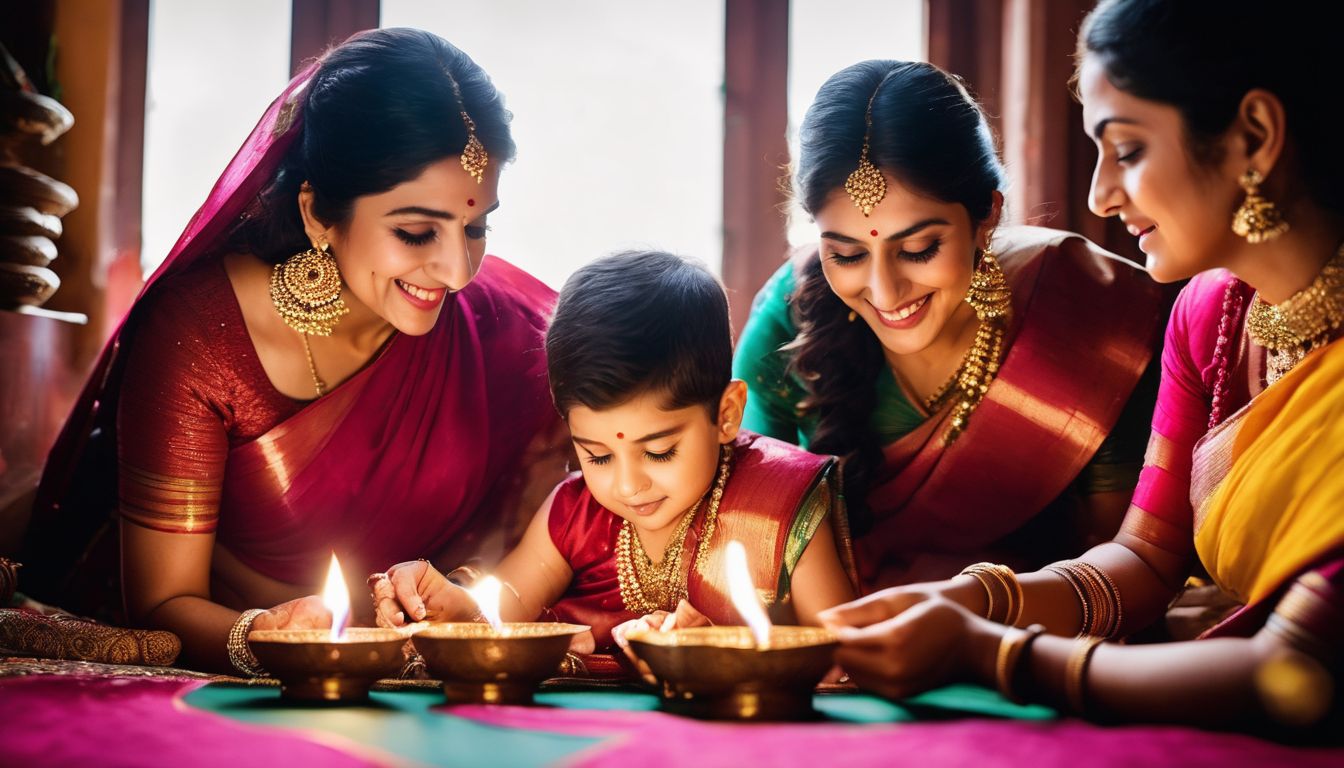
The celebration of Diwali in Bangladesh shares many similarities with the Diwali festivities in India, but there are also some noticeable differences. The following table outlines these key points:
| Similarities | Differences |
|---|---|
| Diwali is a significant festival in both India and Bangladesh, celebrated by the Hindu community. | While Diwali is a national holiday in India, it is only a public holiday in regions of Bangladesh with a significant Hindu population. |
| The festival symbolizes the victory of light over darkness and good over evil in both countries. | The scale at which Diwali is celebrated is larger in India due to the higher number of Hindus living there compared to Bangladesh. |
| The celebration involves lighting candles and clay lanterns in both countries. | Local traditions and customs during Diwali might differ, influenced by regional and cultural differences. |
| Diwali fosters family unity and togetherness in both India and Bangladesh. | In Bangladesh, the festival sometimes merges with local harvest festivals, giving it a unique character and set of practices. |
These similarities and differences show that while the essence of Diwali remains the same, the manner and extent of its celebrations vary based on cultural contexts. The festival’s essence of promoting peace, unity, and hope transcends geographical boundaries.
History and Religious Significance of Diwali
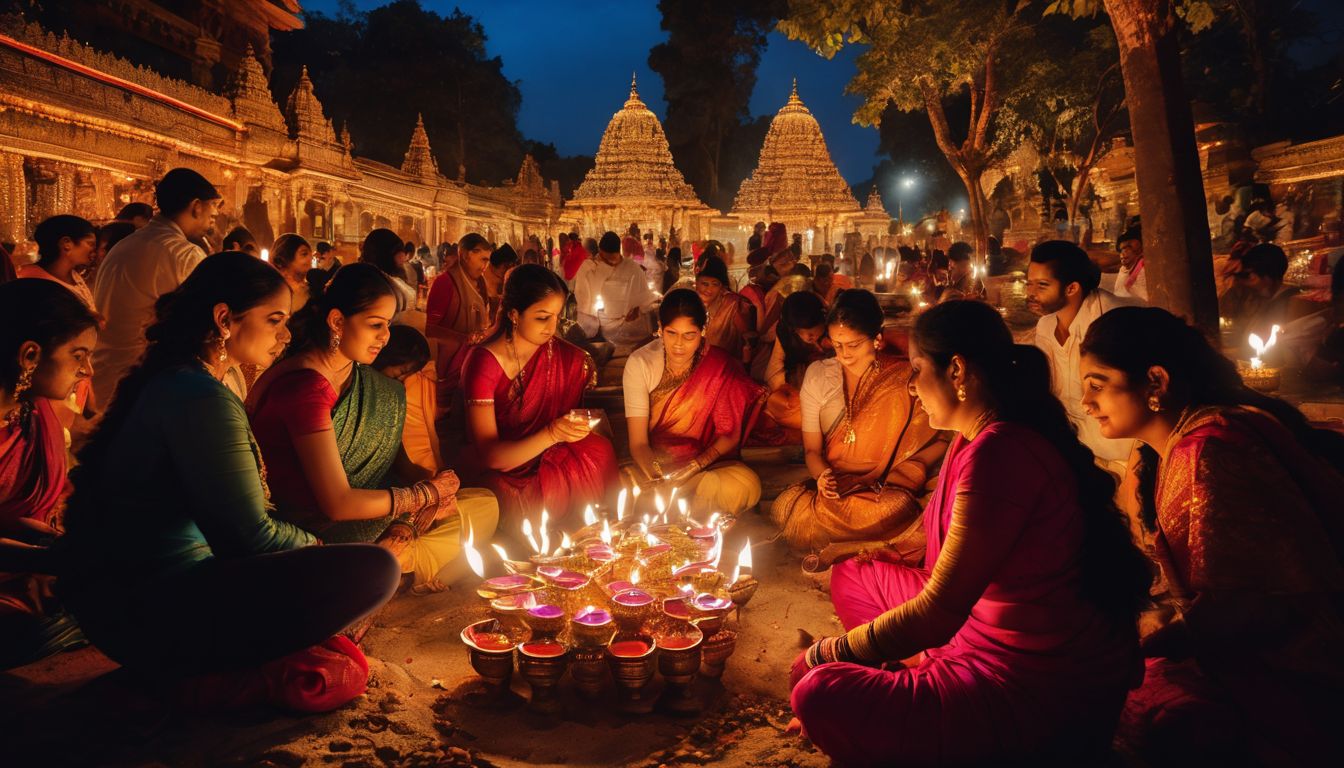
Diwali, also known as Deepavali, holds a rich historical and religious significance for Hindus worldwide.
Etymology and origins
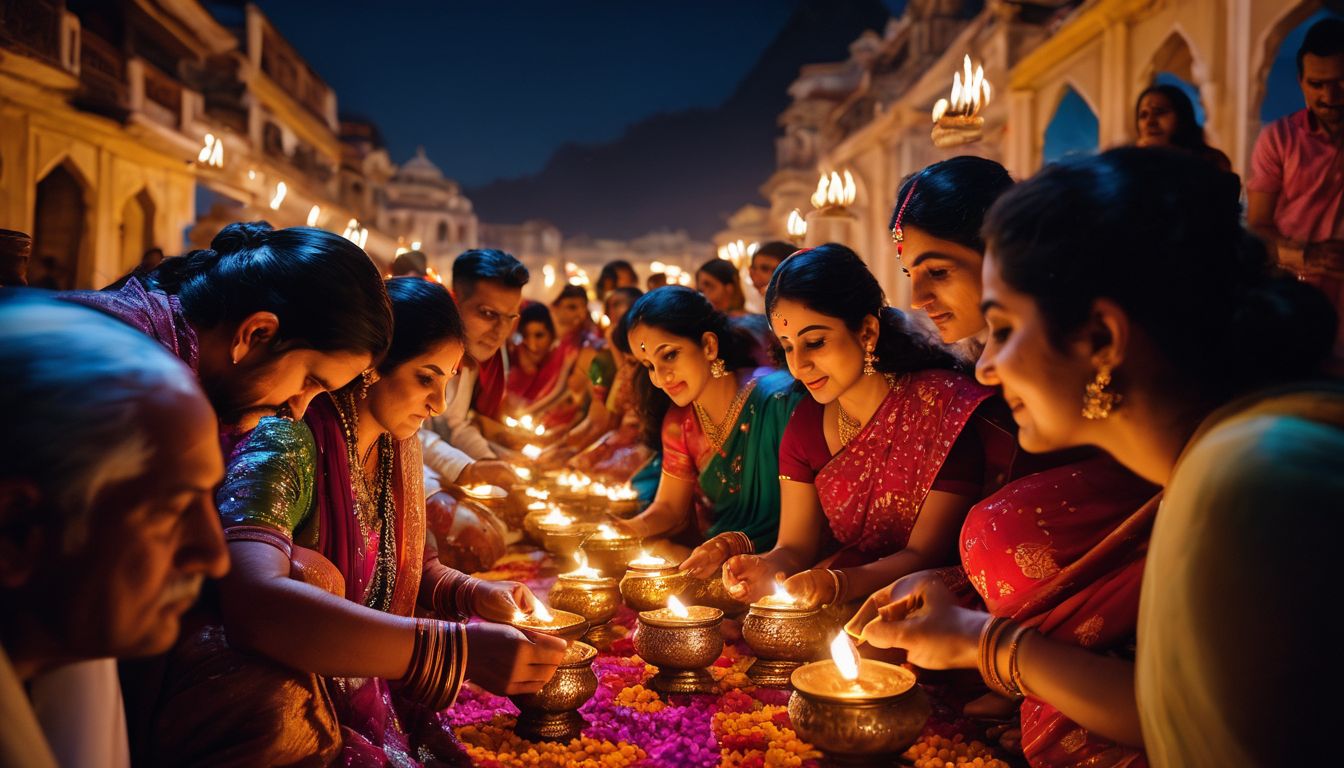
The word “Diwali” comes from the language called Sanskrit. It is a mix of two words: ‘dipa’ means light and ‘avali’ means row. So, Diwali means a line or a row of lights. People celebrate this holiday in different ways for many reasons.
Some say it marks the day when Lakshmi, the goddess of wealth, married Lord Vishnu. This is one story out of many about why people honor Diwali with joy and hope.
Dates of celebration
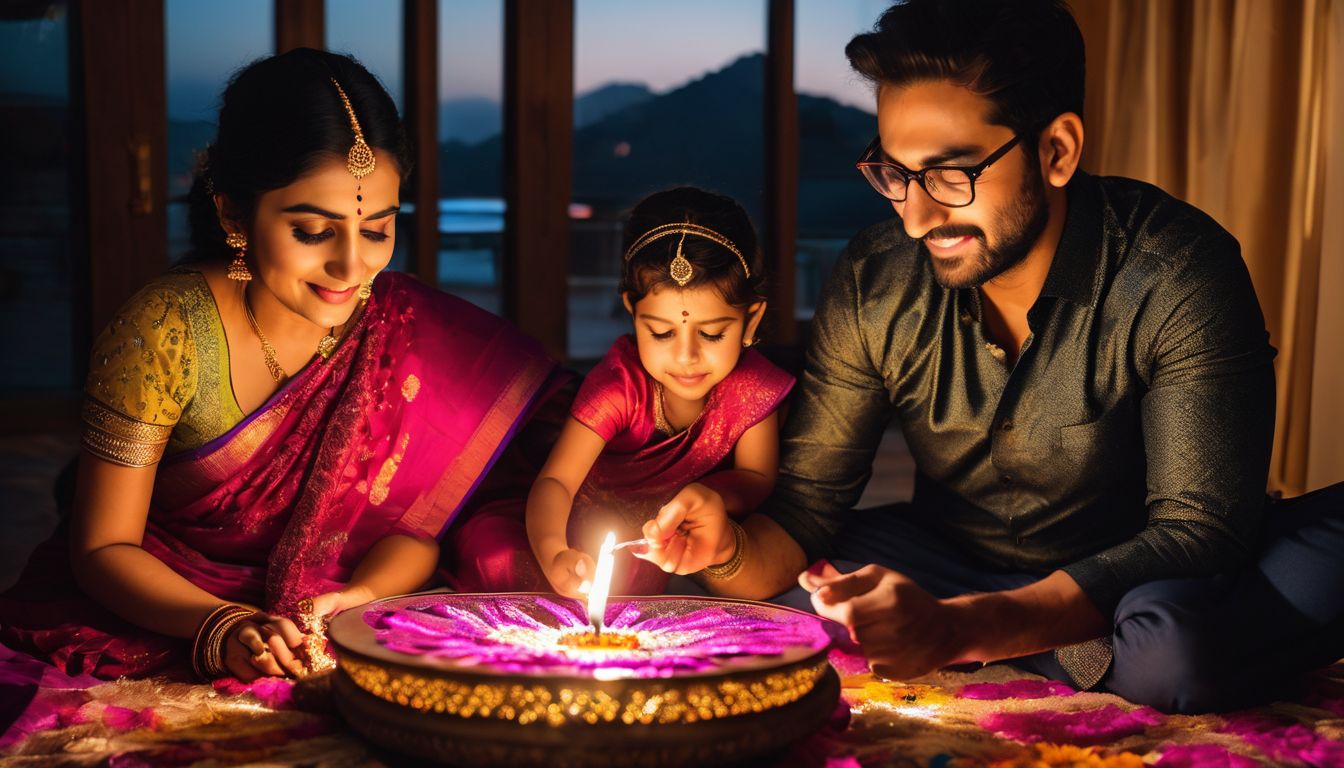
Diwali, the festival of lights, is celebrated during the Hindu month of Kartika. It usually falls between October and November. This five-day festival begins on the 13th day of the Hindu calendar month.
Diwali holds great significance for Hindus, as it symbolizes victory over darkness and good over evil. The dates may vary each year due to the lunar calendar, but the essence and spirit of Diwali remain constant.
Epigraphical evidence
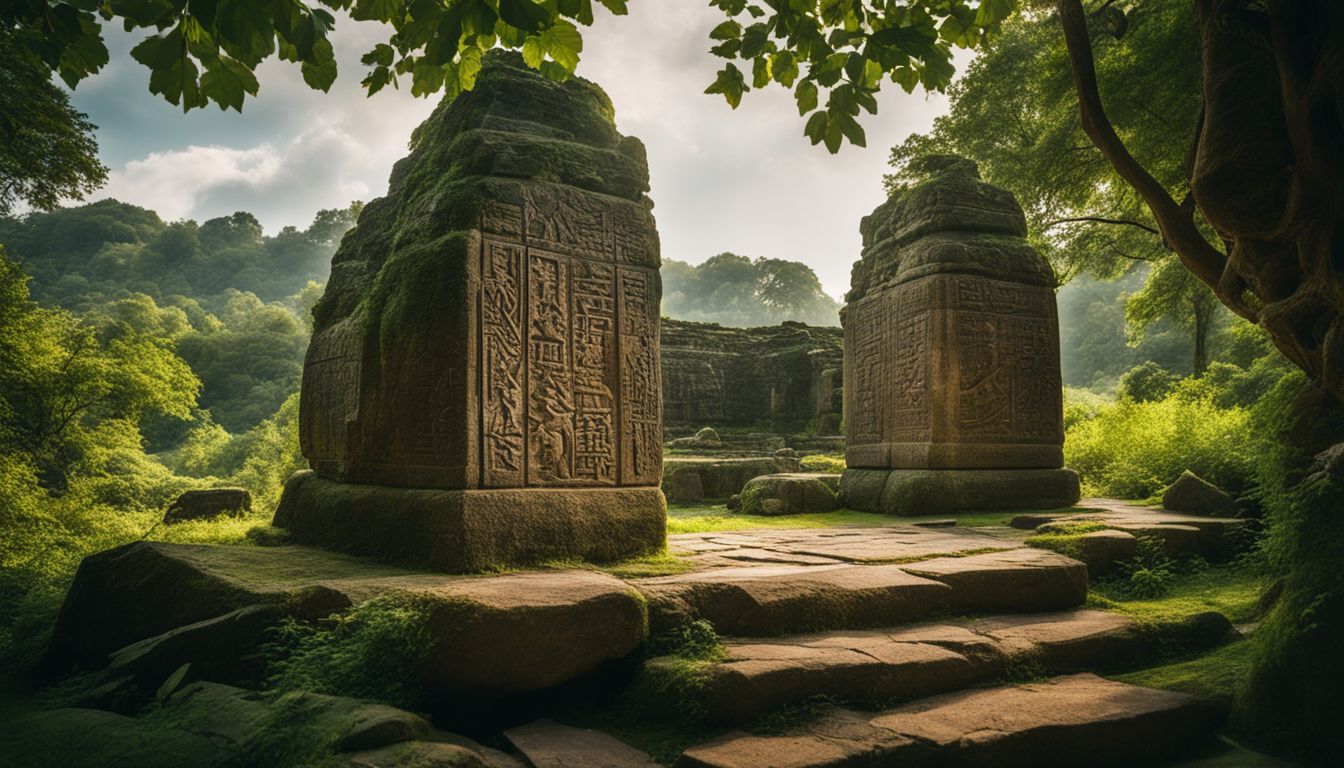
Epigraphical evidence refers to inscriptions or writings on stones, pillars, walls, or other surfaces that provide valuable historical information. In the case of Diwali, epigraphical evidence helps shed light on the festival’s origins and its significance over time.
These inscriptions often mention rituals, ceremonies, and celebrations related to Diwali in ancient times. They help us understand how the festival has evolved and been celebrated throughout history.
Epigraphical evidence also gives us insights into the religious practices and beliefs associated with Diwali in different regions. It provides a glimpse into the cultural heritage of Diwali and reinforces its importance as a celebration of light, victory, and hope for Hindus in Bangladesh and beyond.
Religious significance for Hindus
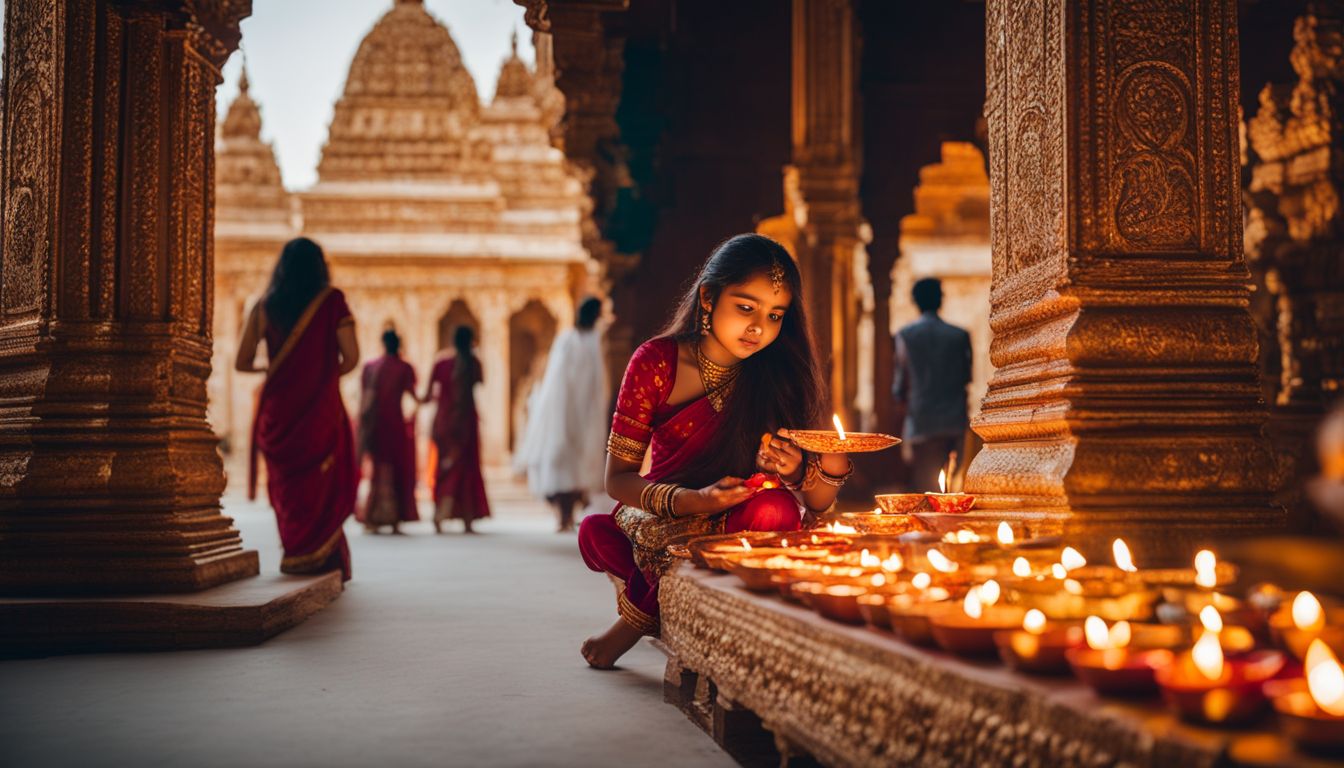
Diwali holds great religious significance for Hindus. It is a festival that represents the victory of light over darkness, good over evil, and knowledge over ignorance. Hindus believe that Diwali symbolizes the triumph of positive forces in the world.
It is a time to celebrate and honor these values by lighting candles and oil lamps, offering prayers to deities, and engaging in rituals that promote positivity, harmony, and prosperity.
Diwali is considered one of the most important festivals in Hinduism as it brings people together to strengthen their faith and renew their commitment to spiritual growth.
Celebrations of Diwali in Bangladesh
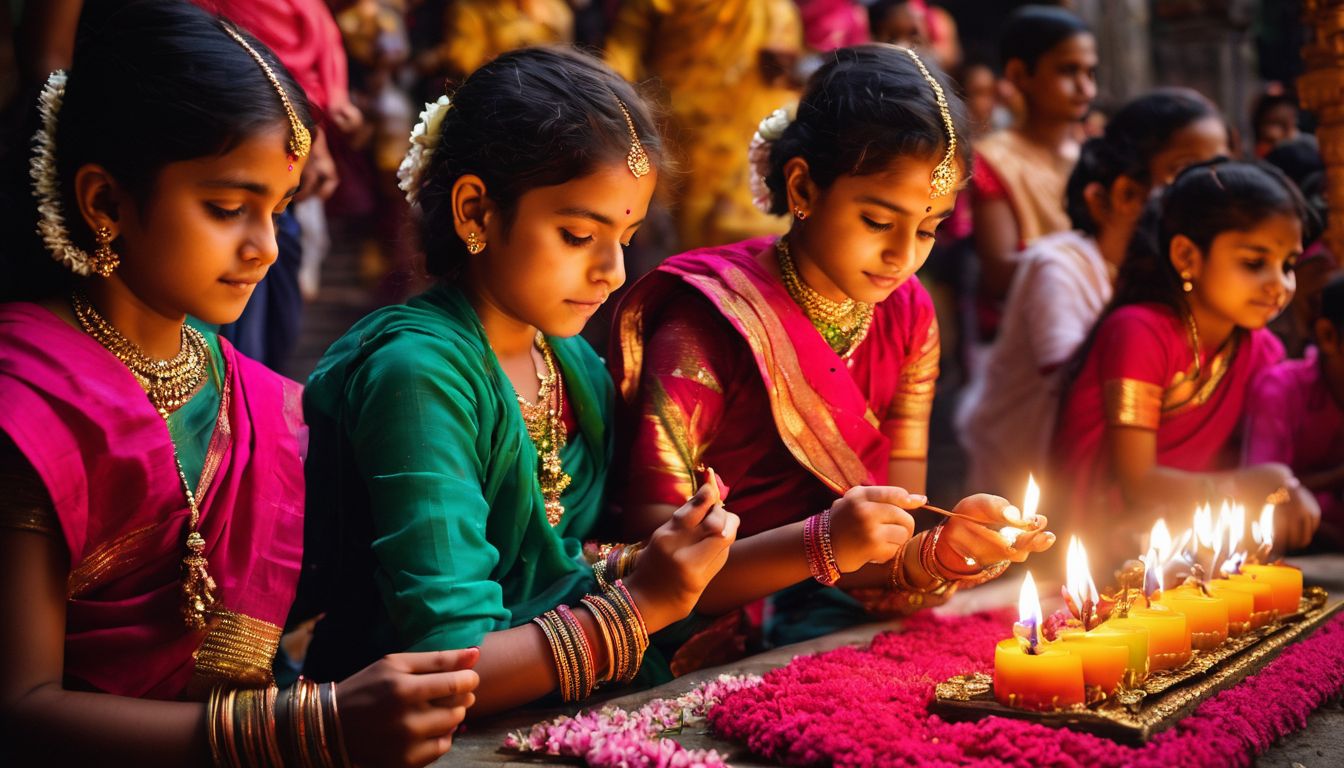
Diwali celebrations in Bangladesh are filled with vibrant traditions and customs. From the preparations leading up to the festival, to the importance of each day during Diwali, immerse yourself in the joyous festivities of this auspicious occasion.
Click here to delve deeper into the magical world of Bangladeshi Diwali celebrations!
Preparations and traditions
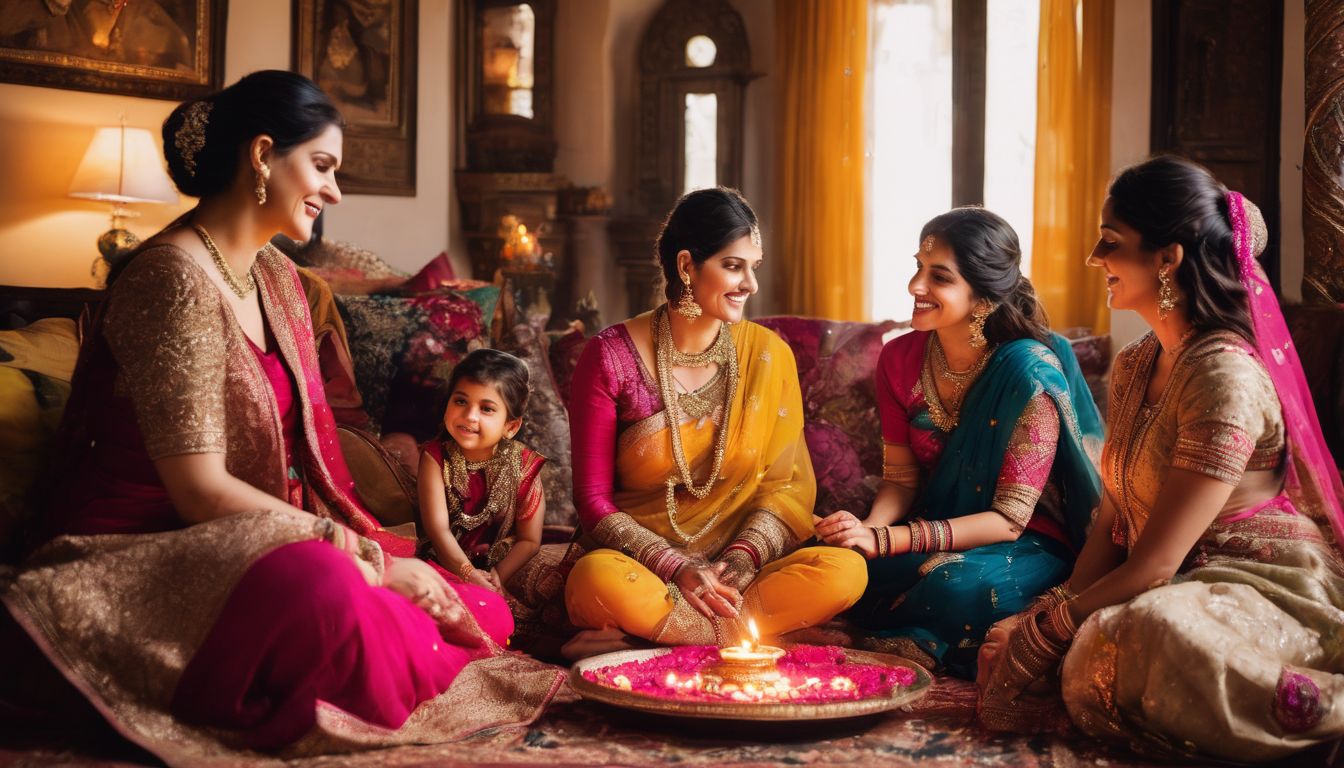
To prepare for Diwali in Bangladesh, Hindus engage in various traditions and customs. Here are some important preparations and traditions:
- Cleaning: Before Diwali, families thoroughly clean their homes to welcome the goddess of wealth and prosperity, Lakshmi. The belief is that a clean home attracts positive energy and blessings.
- Decorating homes: People decorate their houses with colorful rangoli patterns made from colored powders or rice flour. They also hang strings of flowers and colorful lights to create a festive atmosphere.
- Wearing new clothes: During Diwali, it is customary for individuals to wear new clothes as a sign of renewal and auspiciousness.
- Exchanging gifts: People exchange gifts with their loved ones as a way of expressing love and affection. It is common to give sweets, fruits, or clothing items as gifts during this time.
- Lighting lamps: On the first day of Diwali, clay lamps called diyas are lit around the house. This symbolizes driving away darkness and welcoming light into one’s life.
- Prayer rituals: Families gather together to perform puja (worship) ceremonies dedicated to Goddess Lakshmi and Lord Ganesha, seeking their blessings for prosperity and happiness.
- Bursting firecrackers: Firecrackers are traditionally burst during Diwali as a way to ward off evil spirits and celebrate the victory of light over darkness.
- Feasting: Special meals are prepared during Diwali, consisting of delicious traditional dishes such as sweets, snacks, curries, and rice dishes.
Various rituals and customs
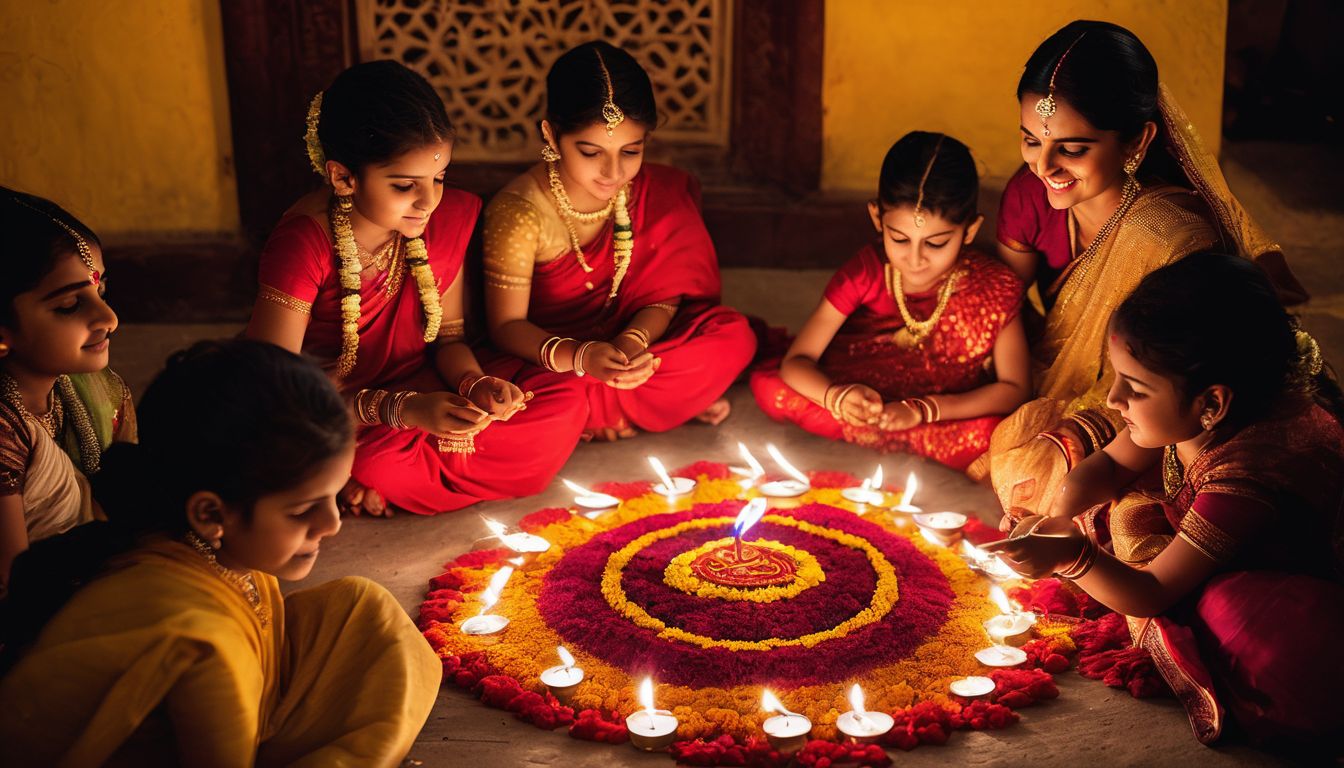
During Diwali in Bangladesh, there are several rituals and customs that are followed to celebrate this festival of lights:
- Lighting diyas and candles: People light oil lamps called diyas and decorate their homes with colorful candles to symbolize the triumph of light over darkness.
- Firecrackers: Bursting firecrackers is a popular tradition during Diwali, spreading joy and excitement.
- Rangoli: Creating intricate designs on the floor using colored sand or rice is a customary practice. These beautiful patterns add to the festive ambiance.
- Puja (worship): On Diwali, Hindus perform puja to seek the blessings of Goddess Lakshmi, the deity of wealth and prosperity. They also offer prayers to Lord Ganesha for wisdom and success.
- Exchange of gifts: Gifting is an essential part of Diwali celebrations. Friends and family exchange sweets, clothes, and other presents as a gesture of love and goodwill.
- Feasting: Special meals are prepared during Diwali, including various sweets and savories. Families gather together to enjoy these delicious treats.
- Cleaning and decorating homes: Before Diwali, people thoroughly clean their homes as it is believed to welcome goddess Lakshmi. They also decorate their houses with flowers, garlands, and colorful decorations.
- Visiting temples: Many devotees visit temples on Diwali for special prayers and seek blessings from the deities.
Importance of each day (Dhanteras, Naraka Chaturdashi, Lakshmi Pujan, Annakut, Bhai Duj)
Dhanteras, Naraka Chaturdashi, Lakshmi Pujan, Annakut, and Bhai Duj are all important days during the Diwali celebrations in Bangladesh. Here’s why they matter:
- Dhanteras: This day is dedicated to worshipping Goddess Lakshmi and Lord Kubera for wealth and prosperity. People light oil lamps and buy new items as a symbol of bringing good fortune into their homes.
- Naraka Chaturdashi: On this day, the victory of Lord Krishna over the demon Narakasura is celebrated. It represents the triumph of good over evil and reminds people to stand up against injustice.
- Lakshmi Pujan: The main highlight of Diwali, this day involves worshiping Goddess Lakshmi for wealth, prosperity, and well-being. People clean their homes, create beautiful rangoli designs, offer prayers, and light candles or diyas to invite blessings from the goddess.
- Annakut: Also known as Govardhan Puja, this day is observed as a symbol of gratitude to Lord Krishna for his protection and blessings. Devotees prepare a variety of vegetarian dishes called “annakut” and offer them to the deities.
- Bhai Duj: The final day of Diwali celebrations focuses on the bond between brothers and sisters. Sisters pray for their brothers’ well-being and perform special rituals that strengthen their relationship.
Impact of Politics and Economics on Diwali
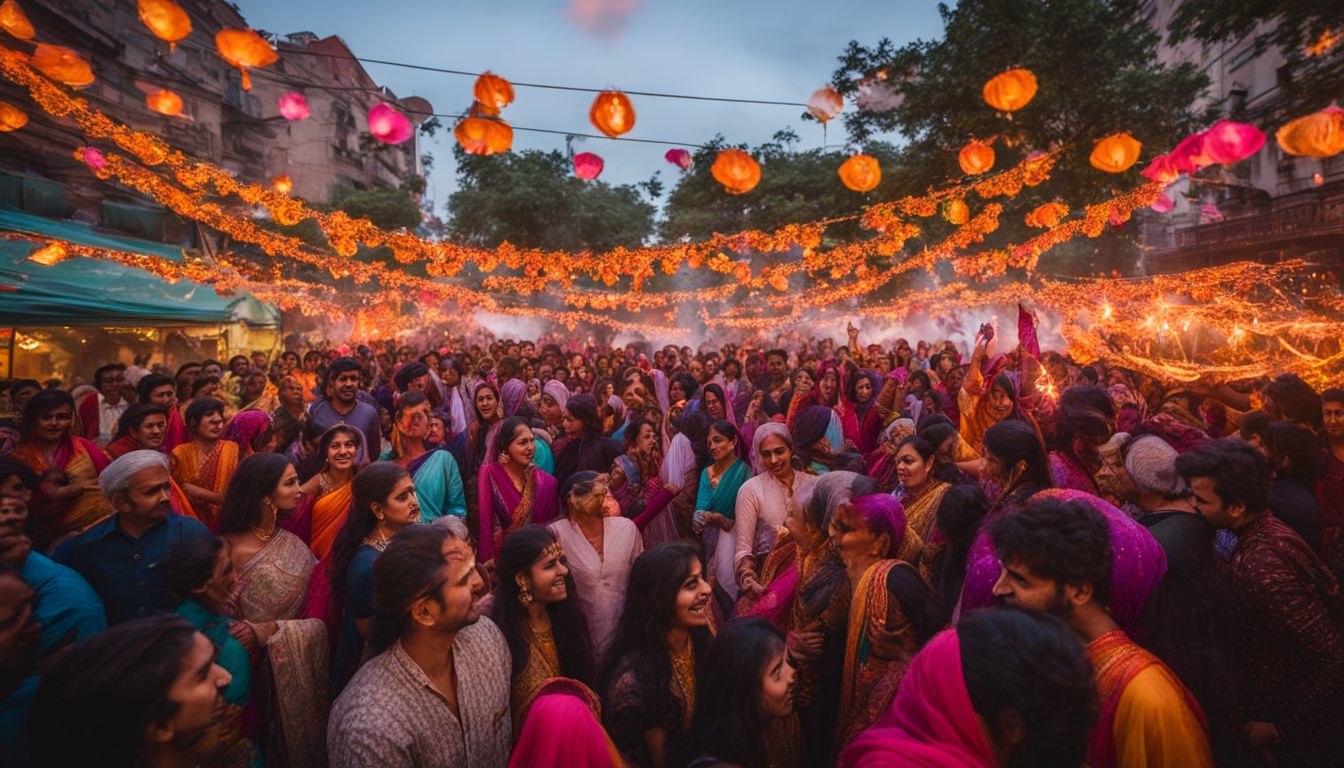
The impact of politics and economics on Diwali in Bangladesh is significant, as Hindus face various issues and challenges while celebrating the festival.
Issues and challenges faced by Hindus in Bangladesh
Hindus in Bangladesh face many issues and challenges in their daily lives. Discrimination and violence against them are common occurrences. Riots during Diwali have particularly shocked Hindu Americans, who were hoping for a peaceful celebration.
Economically and politically, Bengali Hindus are marginalized, leading to a disconnection with Calcutta. There is also concern about the safety of Hindus due to the rise of Hindu extremism and attacks on temples.
Unfortunately, these challenges may contribute to the decline of the Hindu population in Bangladesh in the future.
Political and economic significance
Diwali holds both political and economic significance in Bangladesh. Politically, the festival is celebrated by Hindus across the country, showcasing their cultural identity and presence.
Diwali serves as a platform for unity and inclusivity, emphasizing diversity within politics. Additionally, the festival symbolizes victory over darkness, which can be seen metaphorically as a representation of political power and leadership.
Economically, Diwali stimulates the market through increased consumer spending. During this festive period, people tend to spend more on various goods and services. This leads to product upgrades and increased sales, which directly impacts the economy positively.
The boost in economic activity during Diwali benefits businesses and helps drive growth in different sectors. Thus, highlighting its value beyond religious and cultural aspects.
Hindu Americans’ Reaction to Tragic Riots during Diwali
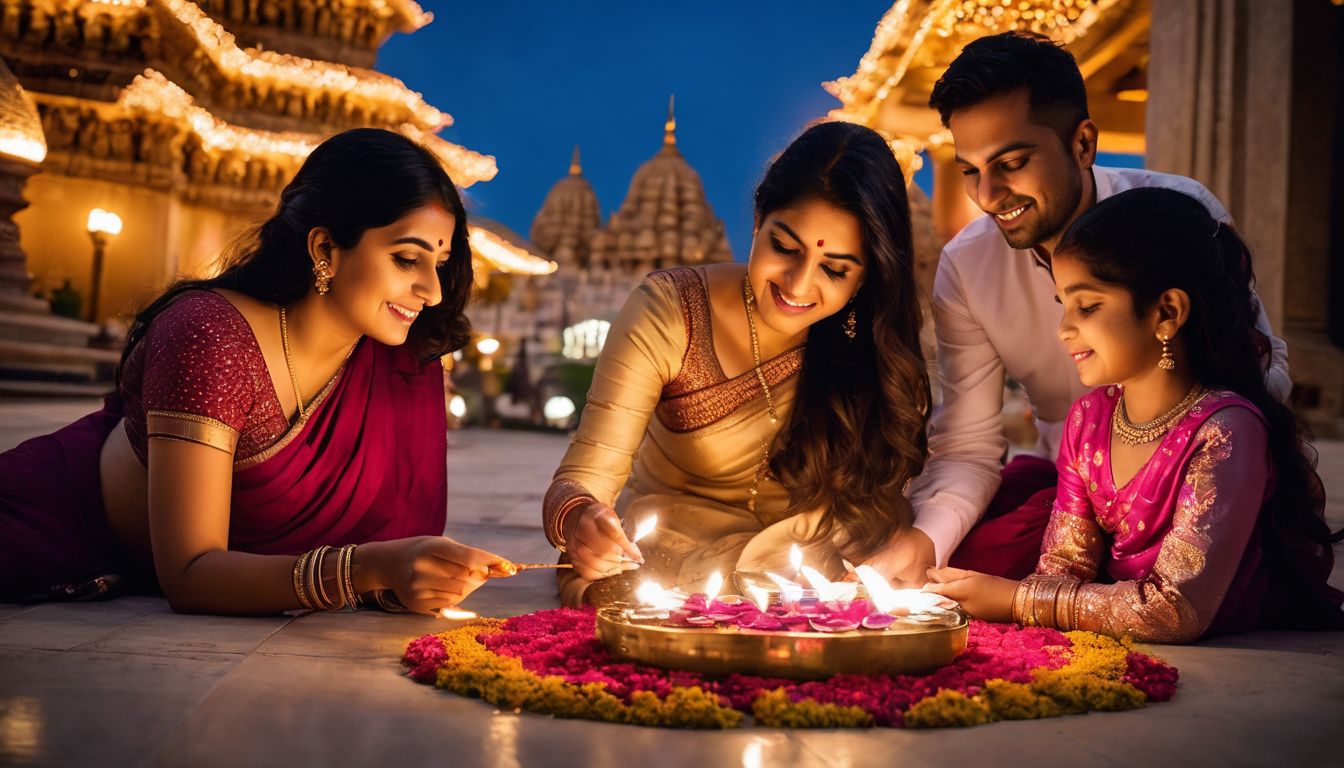
Hindu Americans were deeply saddened and upset by the riots that took place in Bangladesh during Diwali. They expressed their shock and disappointment at the news of these violent acts, especially because Diwali is a time of joy and celebration for Hindus around the world.
The Hindu American Foundation (HAF) condemned the riots and called for peace and unity. They emphasized the importance of religious freedom and respect for all faiths, urging people to come together and stand against violence during this sacred festival.
Hindu Americans hoped for calmness, understanding, and harmony to prevail, as they believe that Diwali should be a time when people can connect with one another in love, light, and hope.
The Forgotten Folklore Project and Its Relevance during Diwali
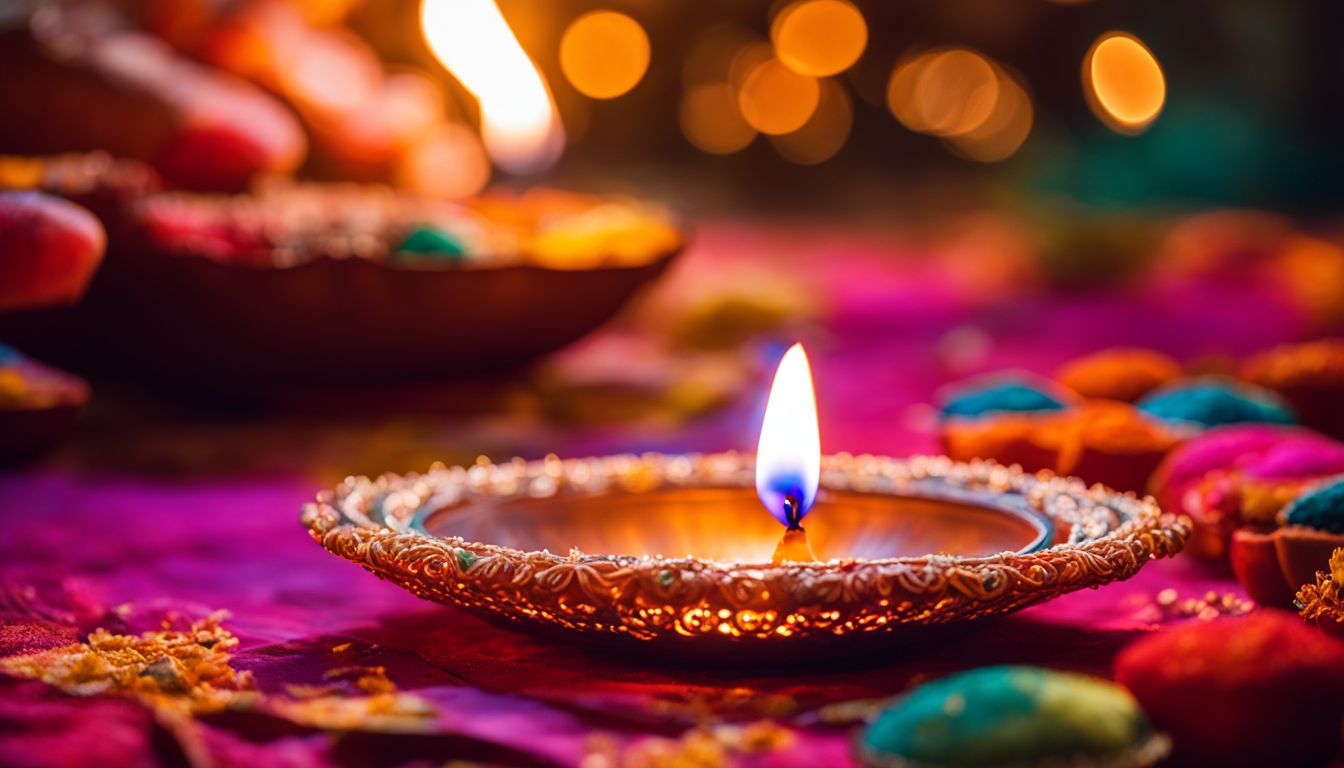
During Diwali, the Forgotten Folklore Project reminds us of the importance of celebrating light, victory, and hope in Bangladesh. This project highlights the significance of Diwali as a festival that symbolizes the triumph of positivity and enlightenment over darkness and ignorance.
It focuses on the stories and legends associated with Diwali, such as Prince Rama’s return from exile and his victory over evil. Through this project, people are reminded of the spiritual significance of Diwali and its role in bringing hope and happiness to their lives.
The Forgotten Folklore Project helps to preserve the cultural heritage of Diwali by highlighting its relevance in contemporary times. It showcases how this festival is not just about fireworks and celebrations but also about embracing values like love, compassion, forgiveness, and unity.
By exploring the rich folklore surrounding Diwali, this project serves as a reminder that amidst modern-day challenges, we can find solace in ancient traditions that promote peace, harmony, and faith.
In summary,
the Forgotten Folklore Project emphasizes the importance of celebrating light,
victory,and hope during Diwali.
It reminds us that
Diwalisymbolizes good overcoming evil,
knowledge triumphing over ignorance,
and positivity prevailing over darkness.
By preserving cultural heritage through storytelling
and showcasing traditional values,
this project brings outthe relevanceofDiwaliduringthepresenttimes
and servesas a platform for spreading peace,hope,and happiness amongpeople
Nambie – A Unique Tradition during Diwali in Bangladesh
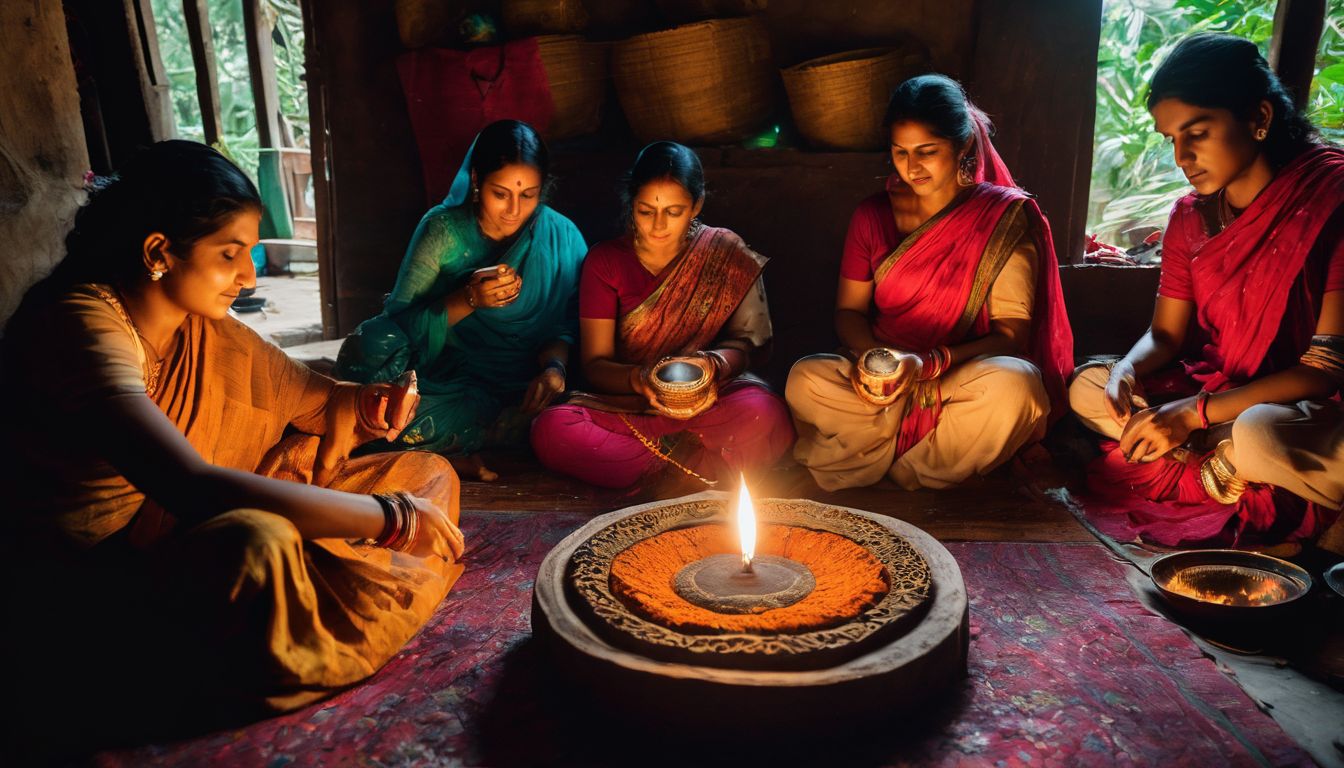
During Diwali in Bangladesh, a unique tradition called Nambie is observed. This tradition involves the lighting of hand-made clay lamps around homes and temples on the first day of Diwali.
These lamps are placed on bamboo sticks and serve as a symbol of light and prosperity. The act of lighting these lamps is believed to ward off evil spirits and invite positive energy into the surroundings.
It is a beautiful sight to see these glowing lamps illuminating the darkness during this festive season in Bangladesh.
Tourism and its Effect on Traditional Celebrations
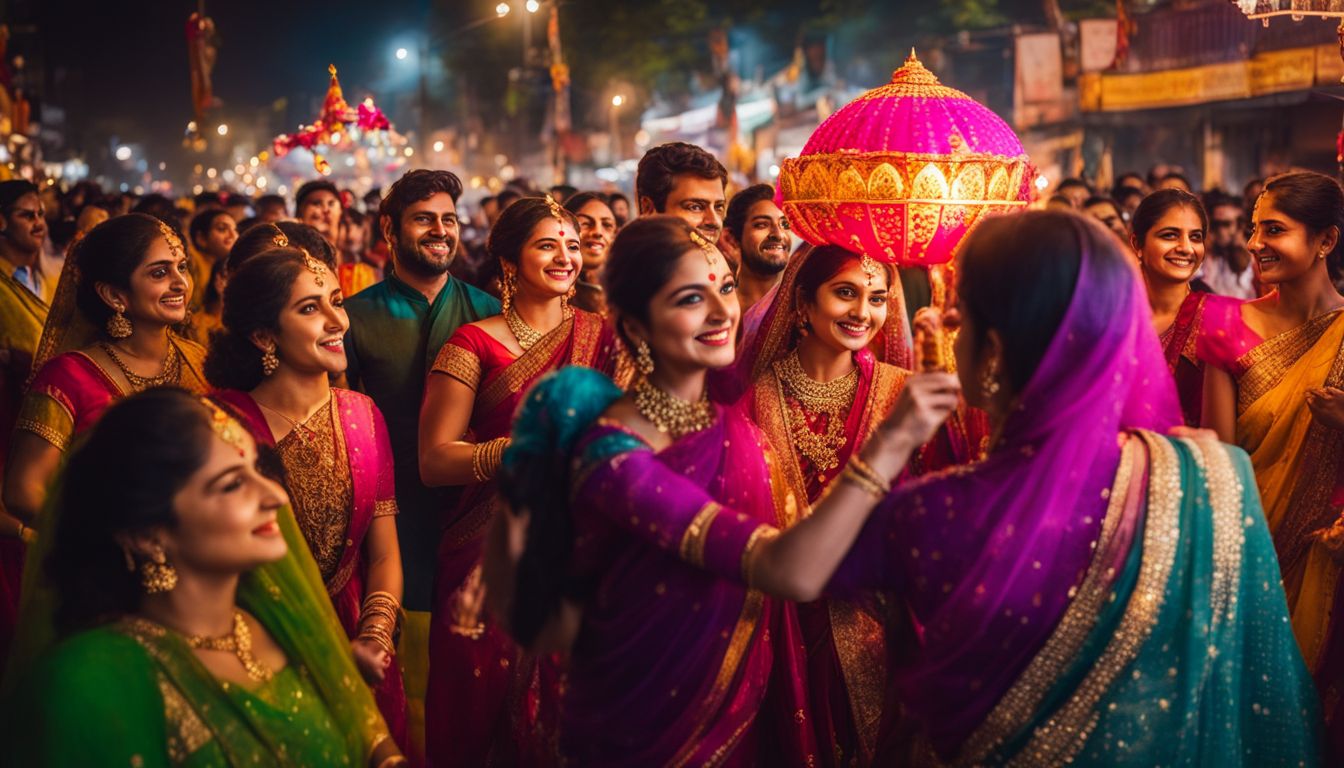
Diwali in Bangladesh has become a major attraction for tourists from all over the world. The celebration is now held with great grandeur and draws a large number of visitors each year.
This influx of tourists has had an impact on the traditional celebrations of Diwali.
The presence of tourists has led to an increase in commercialization during Diwali. Local businesses take advantage of the festive season by selling various products and services related to the celebration.
This can sometimes overshadow the true essence of Diwali, which is meant to be a time for spiritual reflection and family bonding.
Furthermore, tourism has also influenced the way Diwali is celebrated in Bangladesh. With more exposure to different cultures and traditions, some locals have started incorporating elements from other countries into their own festivities.
While this adds diversity and richness to the celebration, it also dilutes some of its traditional aspects.
Overall, while tourism brings economic benefits to local communities during Diwali, it also poses challenges in maintaining the authenticity and significance of this important festival.
As more people visit Bangladesh during this time, it becomes crucial for both locals and tourists alike to respect and preserve the traditional customs and values associated with Diwali.
Conclusion: Diwali as a Platform for Peace and Hope.
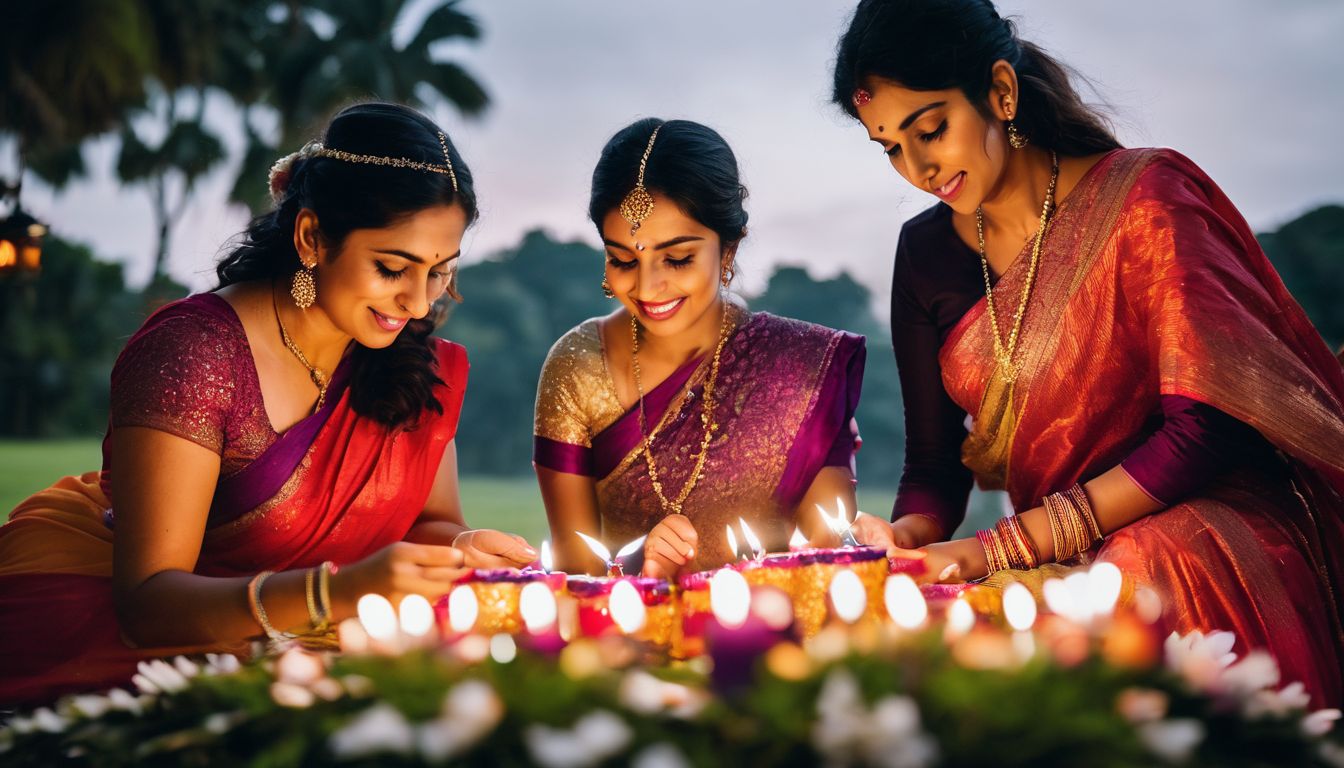
Diwali holds great significance for Bangladeshi Hindus as it celebrates light, victory, and hope. This festival symbolizes the triumph of good over evil and brings a sense of positivity and optimism.
It is a time for forgiveness, family gatherings, and starting anew with a renewed sense of peace. Diwali serves as a platform for spreading joy, fostering unity among communities, and inspiring hope for a brighter future.
FAQs
1. What is the significance of Bangladeshi Diwali?
Bangladeshi Diwali is celebrated to symbolize light overcoming darkness, victory over evil, and the hope for a brighter future.
2. How is Bangladeshi Diwali celebrated?
Bangladeshi Diwali is celebrated by lighting oil lamps (diyas), decorating homes with colorful lights, exchanging gifts and sweets, wearing new clothes, and participating in prayer rituals.
3. Is Bangladeshi Diwali a religious festival?
Yes, Bangladeshi Diwali has religious significance as it is primarily observed by Hindus to honor the goddess Lakshmi and seek her blessings for prosperity.
4. Are there any special foods associated with Bangladeshi Diwali?
Yes, during Bangladeshi Diwali, people prepare various traditional sweets like rasgulla (cheese balls soaked in syrup) and gulab jamun (deep-fried milk-based dumplings in sugar syrup) to share with family and friends.
5. Why is celebrating light important during Bangladeshi Diwali?
Celebrating light during Bangladeshi Diwali signifies the triumph of good over evil and reminds people of the power of positivity and hope amidst challenges in life.
